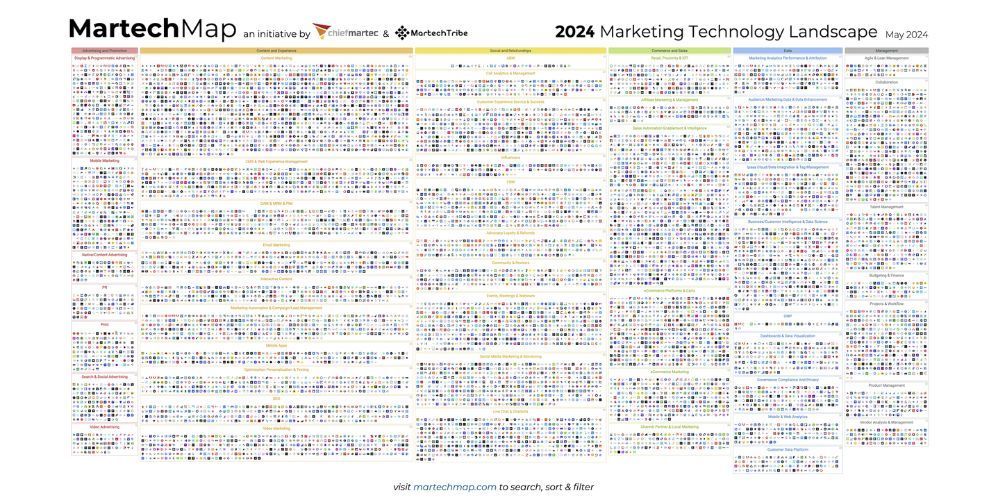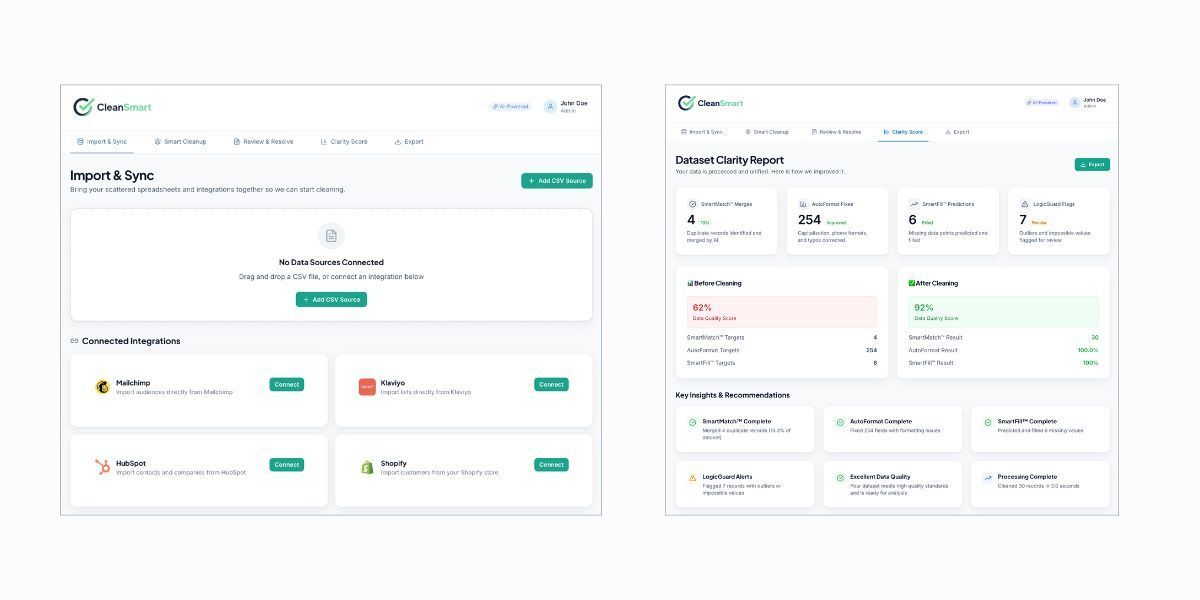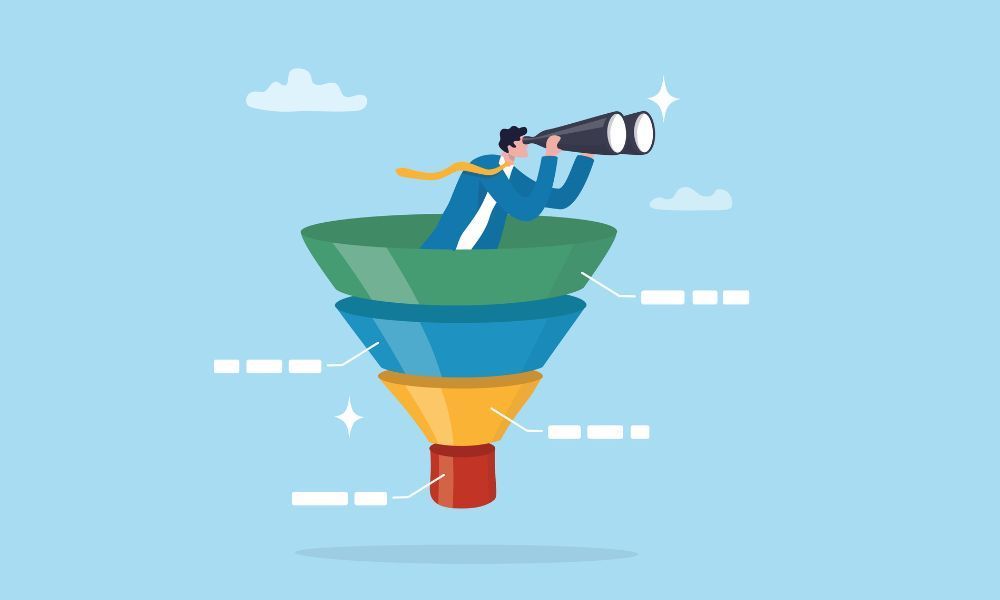What is MarTech? A Comprehensive Guide to Marketing Technology
Marketing Technology, or MarTech, includes the tools and software that empower businesses to plan, execute, and measure marketing efforts. From Customer Relationship Management (CRM) platforms like Salesforce that centralize customer interactions to automation tools like Marketo that streamline campaigns, MarTech has revolutionized modern marketing. Google Analytics provides real-time insights into web traffic, while SEMrush and Moz optimize content for search engines. With digital transformation accelerating, businesses rely on MarTech to enhance customer engagement, boost efficiency, and drive measurable results. This guide explores the landscape, key components, and evolving role of MarTech in modern marketing.

The MarTech Landscape and Core Components
MarTech spans a vast range of technologies designed to improve marketing effectiveness. A company’s MarTech stack—its suite of integrated marketing tools—determines how effectively it can execute campaigns and optimize customer journeys. Industry giants such as HubSpot, Salesforce, and Google Analytics are foundational to many stacks, helping businesses navigate an evolving digital landscape where the global MarTech market, valued at over $340 billion in 2023, continues to expand.
These tools fall into key categories:
Customer Relationship Management (CRM)
CRM systems serve as the backbone of customer interactions, enabling businesses to track, segment, and personalize engagements. Platforms like Salesforce, HubSpot, and Zoho CRM centralize customer data, allowing brands to build lasting relationships and improve communication.
Marketing Automation
Automation platforms take over repetitive marketing tasks, improving efficiency and conversion rates. Solutions such as Marketo, Pardot, and Mailchimp automate tasks like email marketing and social media scheduling, ensuring prospects receive relevant content at precisely the right time.
Data & Analytics
Without data, marketing strategies are just guesses. Tools like Google Analytics, Adobe Analytics, and Tableau offer deep insights into customer behavior, enabling businesses to make data-driven decisions that refine marketing efforts.
Content Marketing & SEO
Great content only works if people can find it. Platforms like SEMrush, Moz, and WordPress optimize content for search engines, helping businesses attract the right audience and improve online visibility.
Advertising Technology (AdTech)
AdTech ensures marketing dollars are spent effectively. Systems like Google Ads, The Trade Desk, and Facebook Ads Manager facilitate programmatic advertising, ensuring precise audience targeting and maximizing ROI.

How MarTech is Transforming Digital Marketing
MarTech is redefining marketing strategies through:
- AI & Machine Learning: AI-driven algorithms analyze user behavior to personalize content, much like Netflix’s recommendation engine, which suggests content based on viewing history.
- Omnichannel Marketing: Businesses create seamless customer experiences across multiple touchpoints. Starbucks, for example, integrates its mobile app with its rewards program, enabling smooth transitions between online and in-store interactions.
- Customer Segmentation: Advanced data analysis helps businesses categorize audiences based on demographics and behavior. Amazon leverages browsing history to deliver personalized product recommendations that drive sales.
- Automation & Workflow Efficiency: Platforms like HubSpot automate follow-up emails, ensuring leads are nurtured efficiently while freeing marketers to focus on strategy and innovation.
Building an Effective MarTech Stack
Creating a robust MarTech stack demands careful consideration of data integration and strategic implementation. A well-designed data integration strategy forms the foundation for delivering personalized customer experiences and driving meaningful engagement across all channels.
Data Integration Strategy
Successful MarTech implementation begins with comprehensive data integration planning. Organizations must first map their existing data sources across all customer touchpoints, from website interactions to email engagement and social media activity. This integrated approach enables the creation of unified customer profiles that combine behavioral, transactional, and demographic data. Organizations then establish real-time data synchronization protocols to ensure customer information remains current and actionable across all platforms.
Enabling Personalization Through Integration
When data flows seamlessly between platforms, organizations can deliver truly personalized experiences. They begin by building comprehensive customer journey maps that leverage integrated data points from multiple sources. These journey maps inform dynamic segmentation models based on unified customer profiles. This allows for automated trigger-based personalization that responds to customer behavior in real-time. Organizations progressively profile customer data over time, creating increasingly sophisticated personalization opportunities.
Lead Scoring Framework
An integrated MarTech stack powers sophisticated lead scoring capabilities that drive business growth. By combining behavioral and demographic data, organizations create weighted scoring models that align with actual sales conversion patterns. They then implement automated lead routing based on score thresholds, ensuring that sales teams engage with prospects at the optimal moment. Organizations also apply decay rules for time-sensitive actions to maintain scoring accuracy.
Measuring Success
The true value of an integrated MarTech stack becomes apparent through comprehensive measurement. Organizations should track engagement metrics across all integrated channels. They monitor improvements in lead quality through enhanced scoring accuracy. They also measure the effectiveness of personalization through conversion rates. Regular assessment of ROI helps optimize MarTech investments and guides future strategic decisions.
The Future of MarTech
As technology advances, several trends are shaping the future of MarTech.
AI-Powered Automation
AI is refining predictive analytics and content personalization. Chatbots and virtual assistants are reducing response times and improving customer experiences.
Privacy-First Marketing
With GDPR and CCPA regulations, companies must shift to first-party data collection strategies. Apple’s App Tracking Transparency (ATT) policy is already driving businesses to prioritize consent-based marketing.
Augmented Reality (AR) & Virtual Reality (VR)
AR is transforming e-commerce—brands like IKEA allow customers to visualize furniture placement in their homes before purchasing.
Cookieless Future
As third-party cookies disappear, businesses are shifting to first-party data strategies, using loyalty programs and email subscriptions to maintain customer insights.
Integration & Orchestration
Platforms like Salesforce’s Customer 360 unify data across channels, enhancing personalization and efficiency.
Decentralized Marketing Technologies
Blockchain innovations are reshaping digital advertising transparency. Brave Browser’s Basic Attention Token (BAT) ensures advertisers get verifiable engagement while rewarding users.
Looking Ahead
MarTech’s true power lies in orchestration—not just acquiring tools but ensuring they work in harmony. Data integration is key; disconnected systems limit marketing effectiveness. Businesses that connect CRM, automation, analytics, and advertising will gain a complete view of their customers, allowing for tailored experiences and data-driven strategies.
Automation liberates marketers from repetitive tasks, enabling them to focus on creativity and strategy. From nurturing leads through automated email sequences to dynamically adjusting ad spend based on performance, efficiency gains translate to stronger marketing results.
AI-driven insights take marketing to the next level. AI uncovers patterns in customer behavior, predicts future actions, and personalizes interactions at scale. Chatbots handle customer service, while predictive analytics identify high-value prospects—capabilities that are only beginning to be fully realized.
By investing in agile, integrated MarTech stacks, businesses can unlock deeper customer insights, enhance engagement, and drive sustainable growth. In an era of constant change, those who master MarTech orchestration will lead the digital revolution, staying ahead of competitors and meeting evolving consumer expectations.
Author: William Flaiz










